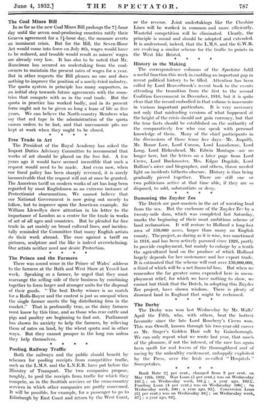History in the Making The correspondence columns of the Spectator
fulfil a useful function this week in enabling an important gap in recent political history to be filled. Attention has been called by Lord Beaverbrook's recent book to the events attending the transition from the first to the second Coalition Government in December, 1916, but it is quite clear that the record embodied in that volume is inaccurate in various important particulars. It is very necessary not only that misleading versions of what happened at the height of the crisis should not gain currency, but that the true facts should be established on the authority of the comparatively few who can speak with personal knowledge of them. Many of the chief participants in the discussions of those tense five days— Mr. Asquith, Mr. Bonar Law, Lord Curzon, Lord Lansdowne, Lord Long, Lord Birkenhead, Mr. Edwin Montagu—arc no longer here, but the letters on a later page front Lord Crewe, Lord Buckmaster, Mrs. Edgar Dugdalc, Lord Balfour's niece and biographer, and others, throw needed light on incidents hitherto obscure. History is thus being gradually pieced together. There are still one or two politicians active at that time able, if they arc so disposed, to add, substantiate or deny.




































 Previous page
Previous page